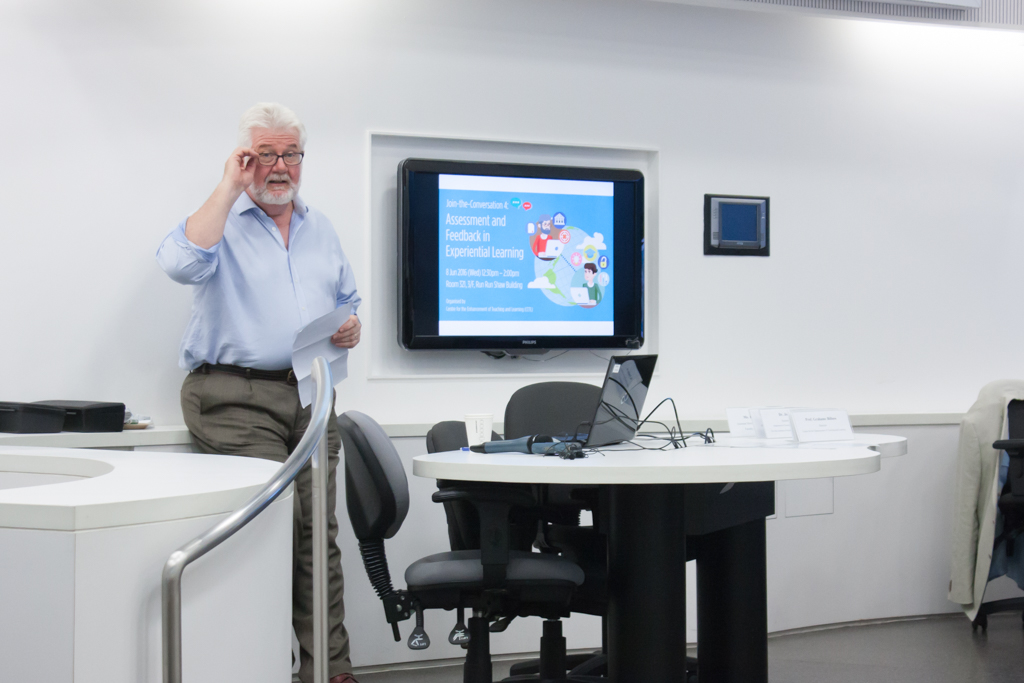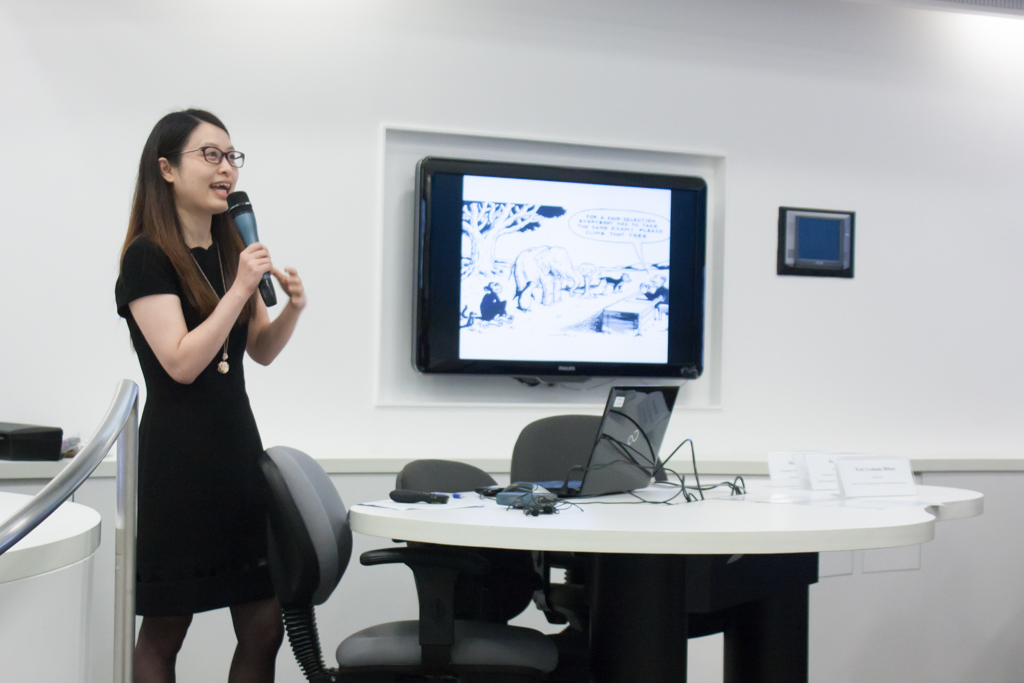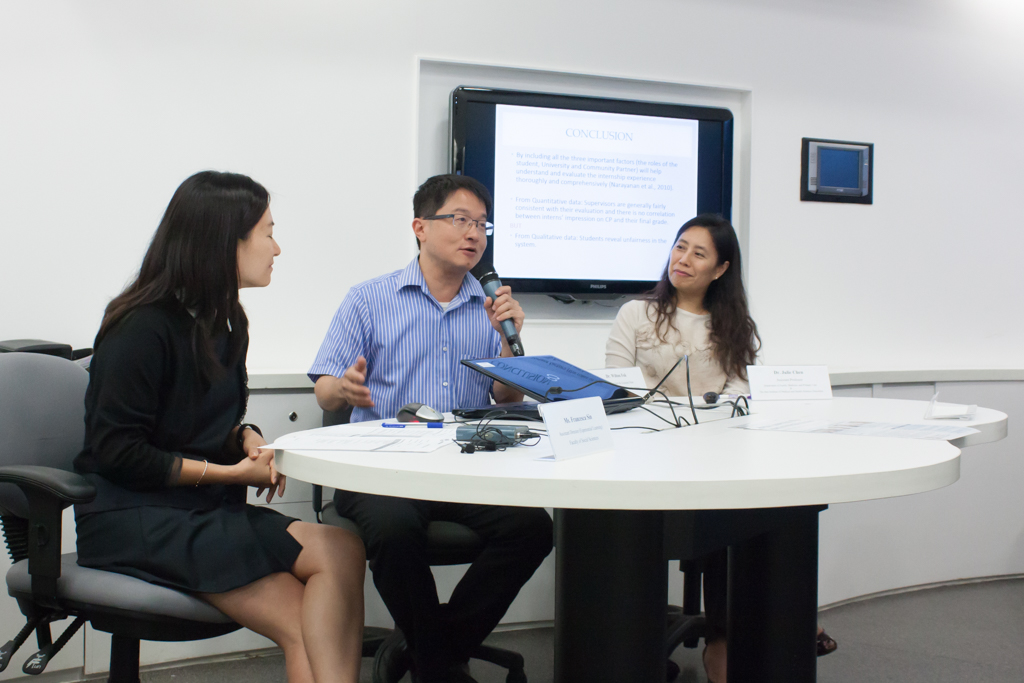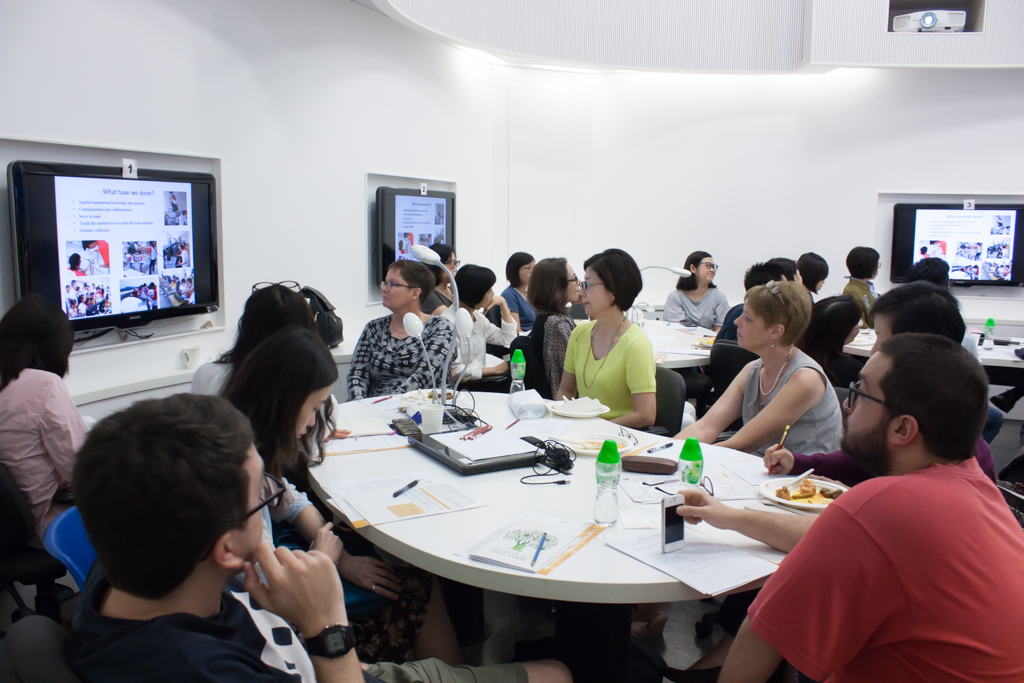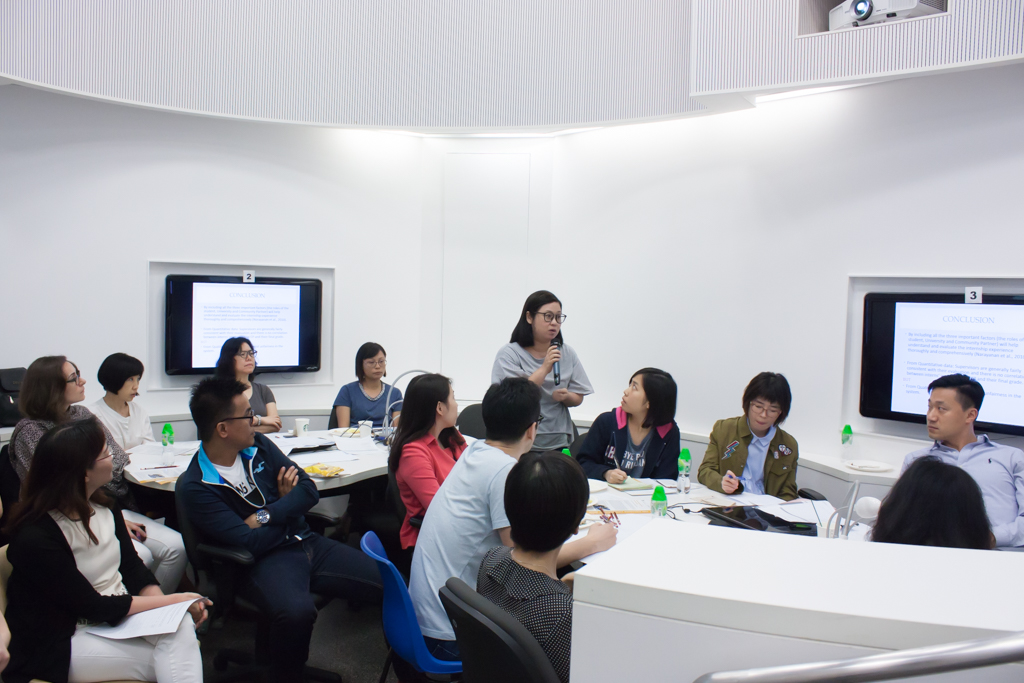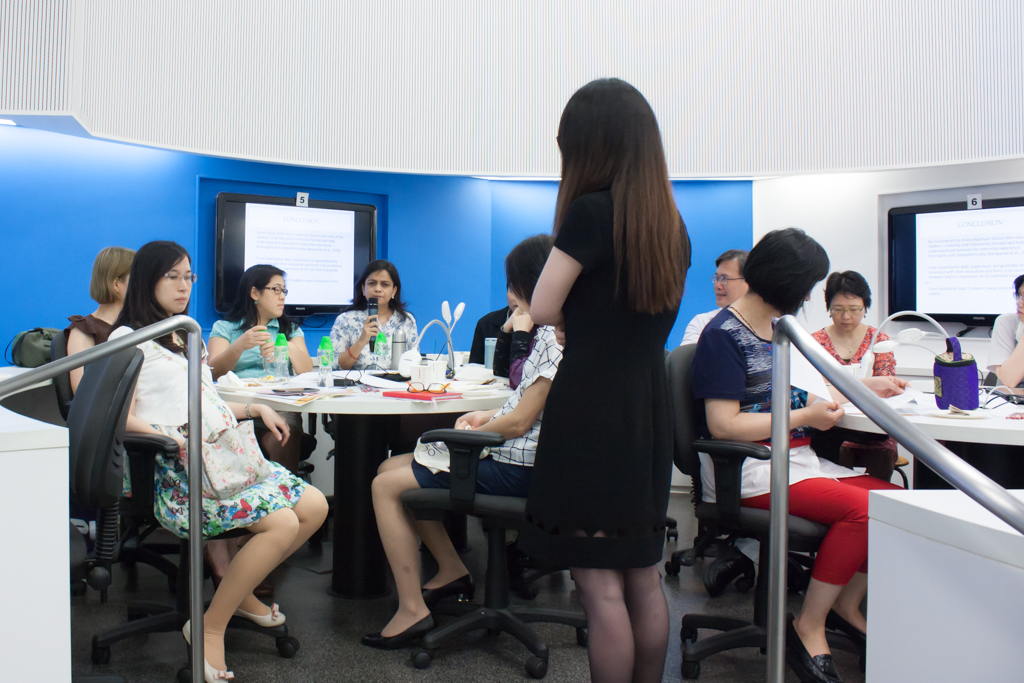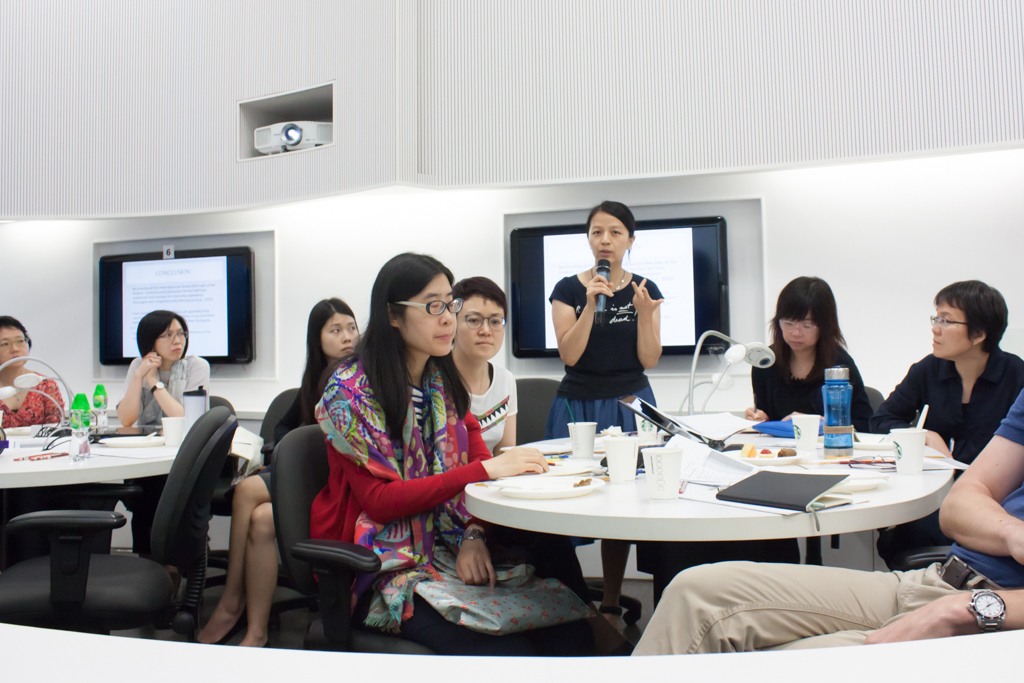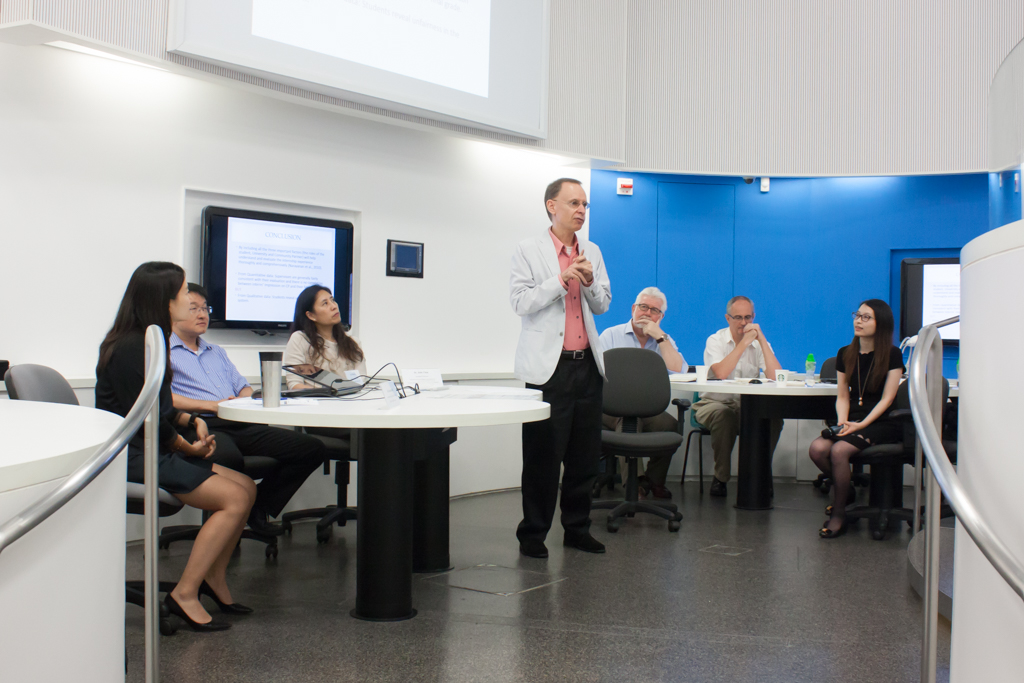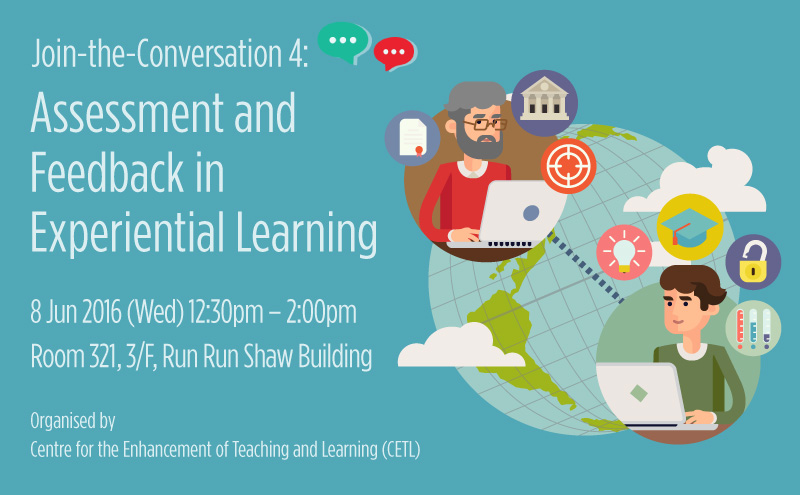
Organised by Centre for the Enhancement of Teaching and Learning (CETL)

Wise practices in assessment and feedback in experiential learning were shared by three panellists:
- Dr Julie Chen: Professionalism in Practice Programme, Department of Family Medicine & Primary Care
- Dr Wilton Fok: Experiential learning projects in Mainland China, Department of Electrical and Electronic Engineering
- Ms Francesca Sin: Social Innovation and Global Citizenship Internship Programme, Faculty of Social Sciences
Dr Julie Chen introduced the importance of professional values, attitudes and professional behaviours in the early stage of medical education. Through role modelling, students learned from community doctors what it meant to be a doctor, and reflected on their professional roles and responsibilities. The preceptors observed and assessed students’ performance using rubrics, and provided feedback.
Dr Wilton Fok presented real-life school reconstruction projects in China that have provided students with opportunities to contribute their engineering knowledge. The assessment tasks included laboratory worksheets and a reflection journal while feedback was given face-to-face and through post-trip evaluation. In view of the difficulties to record students’ work and give immediate feedback, a new e-portfolio platform was explored this year. The e-portfolio platform built on the existing i-Class system enabled students to use their mobile phones to record their work processes and reflection in the form of photos, video, and other means.
Ms Francesca Sin reported a survey of students’ perceptions of supervisors’ evaluation of their work, which weighted 50% of their overall grade of the internship programme. The issue of fairness was raised in view of multiple evaluators, varied job tasks, and different nature of partner organisations. The students concerned about the subjectivity of grading. The survey findings led to the modification of the grading scheme by supervisors this year.
Some issues in assessment and feedback were raised and discussed during the panel-led discussion, for example:
- What kind of support can be provided to preceptors or evaluators to enhance consistency in grading?
- Which grading scheme may better suit the assessment of experiential learning, a letter grading scale or a pass/fail grading?
- What do reflective journals assess, personal growth or performance evaluation?
- Are students familiar with reflective practices? What about those students from the disciplines that are less concerned about writing?
The Join-the-Conversation event was closed by Prof David Carless – Associate Dean (Learning & Teaching), Faculty of Education – with comments on essential components of assessment practices. The first issue was about trust and relationship. Students would react to feedback if they could see credibility of the assessment, and if they could feel the teachers act for their best interest. Another issue was the timeliness of feedback. Prof. Carless would encourage students to evaluate their own work through reflection, and to perform peer review. The third issue of assessment and feedback was to engage students in taking action on feedback, as in the case example of Professionalism in Practice Programme in which medical students wrote a personal oath of profession in their Year 1, and reflected on their oath in Year 3. At the end, Prof Carless highlighted the importance of authentic real life experiences and coherence between learning outcomes and assessment tasks.
Details of the workshop:
Panellists : Dr Julie Chen, Dr. Wilton Fok, Ms. Francesca Sin
Discussants : Prof. Grahame Bilbow, Prof. David Carless, Dr. Tracy Zou
Date : June 8 (Wednesday), 2016
Time : 12:30 p.m. – 2:00 p.m.
Venue : Room 321, 3/F, Run Run Shaw Building (Main Campus), HKU
Hot dishes will be provided.
Abstract
In the University of Hong Kong, experiential learning is a distinctive component in the undergraduate curriculum. The University is also committed to providing a wide range of international and Mainland learning experiences for students under the HKU Horizons framework.
Designing assessment and providing feedback in experiential learning is never an easy task, and the great variety of student experiences involved in experiential learning, including community engagement, has often been associated with challenges in assessment. However, if we can accommodate for and make use of the diversity and authenticity embedded in experiential learning, there is the opportunity to turn these challenges into great learning opportunities.
In this Join-the-Conversation event, we will briefly share our findings from an earlier small-scale study involving interviews with nine teachers and two students at HKU. A panel-led discussion will then follow. Our panellists will outline assessment and feedback practices in their experiential learning programmes and address questions from the audience. The event will be closed by Prof. David Carless, a world renowned expert in assessment and feedback, who will round off by providing comments on the discussion and highlighting some key take-away messages.
About the Panellists
Dr. Julie Chen is an Assistant Professor jointly appointed by the Department of Family Medicine and Primary Care and the Bau Institute of Medical and Health Sciences Education. She has been leading the Professionalism in Practice (PIP) programme, which links a student with the same primary care preceptor over three years to experience what professionalism looks like in real life. Julie is a family physician engaged in the development, implementation and evaluation of new initiatives in the medical curriculum to encourage early learning of professionalism and humanism in medicine. For this work, she has been recognized with a Faculty Teaching Medal and Teaching Excellence Award (Team).
Dr. Wilton Fok is a Principal Lecturer and Assistant Dean in the Faculty of Engineering. He has been leading experiential learning programmes for students from engineering and other disciplines since 2009. He started with a service learning trip after the Sichuan earthquake and has now extended learning experiences to other locations, such as Tianjin, Shanghai and Guangxi. Wilton will also share how his students made use of smartphones to collect artifacts for e-portfolio production in a recent mission to Sichuan.
Ms. Francesca Sin is Assistant Director (Experiential Learning) in the Faculty of Social Sciences. She leads the Social Innovation Global Citizenship Programme in the Faculty. Francesca read Economics at the University of Sydney for her undergraduate degree. She also received a Master of Business Administration, Postgraduate Diploma in Education and Master of Education from The University of Hong Kong and a Certificate of Entrepreneurial Management for Social Enterprises from Education-for-Good / St James’ Settlement. Apart from teaching, Francesca is also heavily involved in many education-related programmes with NGOs and social enterprises throughout Hong Kong, China and developing countries on a voluntary basis. She is currently a candidate of Doctorate of Education in Organisational Leadership from the Meridian University in the States, focusing on Transformative Education.
About the Discussants
Prof. Grahame Bilbow, Director, Centre for the Enhancement of Teaching and Learning, HKU
Prof. David Carless, Associate Dean (Learning & Teaching), Faculty of Education, HKU
Dr. Tracy Zou, Assistant Professor, Centre for the Enhancement of Teaching and Learning, HKU
For information, please contact:
Ms. Noranda Zhang , CETL
Phone: 3917 4729; Email: noranda@hku.hk




